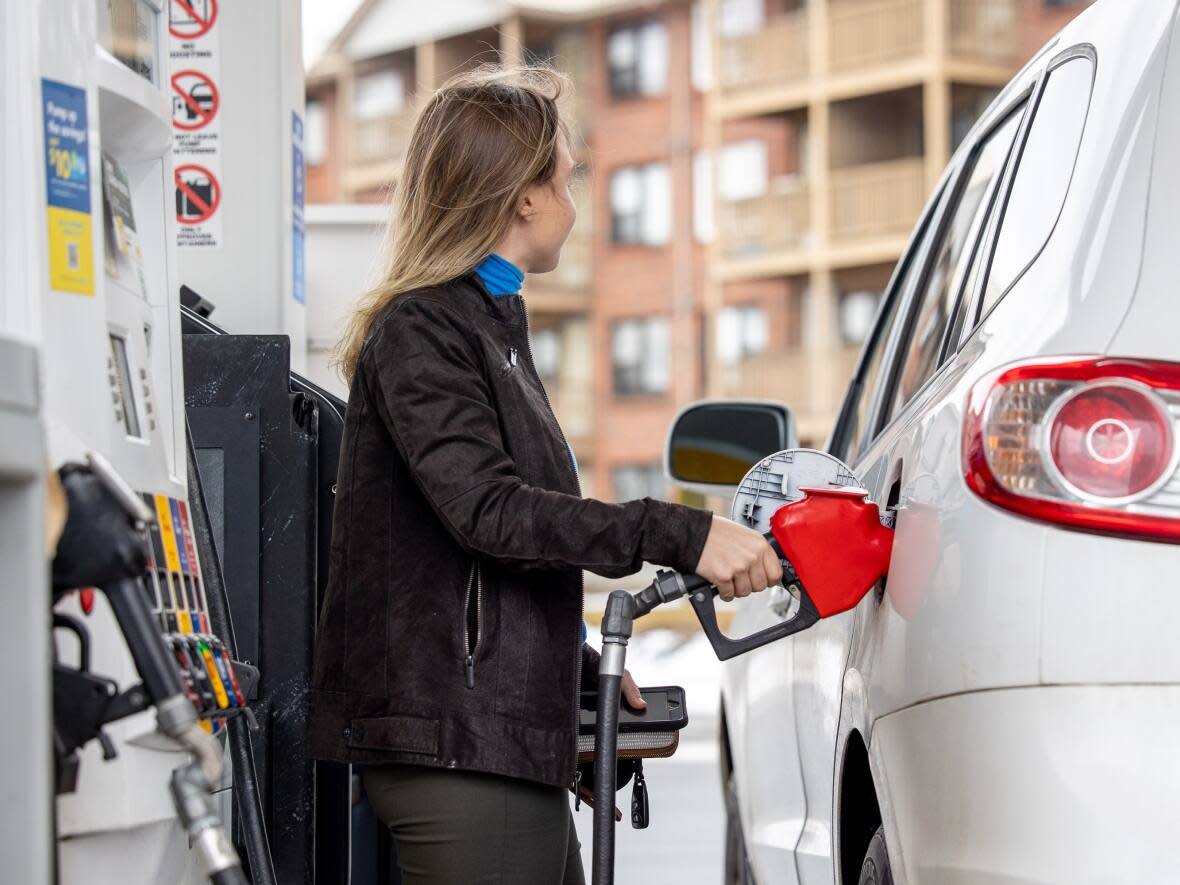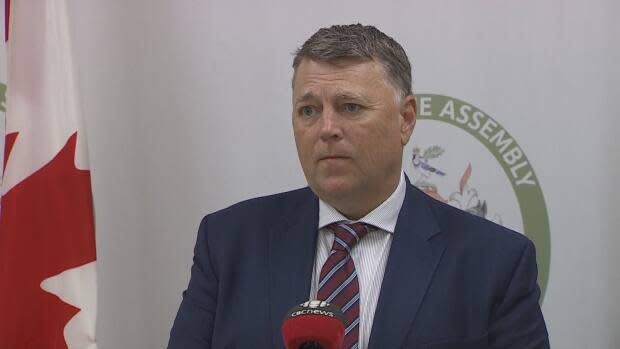P.E.I.'s gas prices are going to jump in July. But by how much, exactly?

Gas prices are expected to jump this summer on Prince Edward Island, but how much you'll pay at the pump is still unclear.
New Clean Fuel Regulations from the federal government take effect in July and there's been plenty of political sparring about exactly how much this is going to cost people.
During Tuesday's Question Period at the P.E.I. legislature, Progressive Conservative backbencher Jamie Fox pressed the premier for answers, given that's the same month Islanders will see rising heating oil, propane, gas and diesel prices due to the federal carbon tax.
King said that even after consulting with the Island Regulatory and Appeals Commission (IRAC), it's not clear how much more Islanders will pay for gas as a result of the Clean Fuel Regulations.
"It could be as high as 8-10 cents per litre," he said.
The premier noted that he hasn't spoken yet to federal Minister of Environment Steven Guilbeault.
"We've written him, as chair of the Council of Atlantic Premiers, but he hasn't gotten back to us yet. We're trying to work to get a meeting as early as tomorrow on this."
Credit-based system
In a further attempt to reduce Canada's carbon emissions by 2030, the Clean Fuel Regulations will require producers or importers of gas or diesel to gradually reduce the carbon intensity of the fuels they sell.
Basically, Ottawa wants fewer emissions and cleaner fuel from producers like the Maritime's sole refinery, based in Saint John, N.B. The Clean Fuel Regulations aren't a tax, but will offer incentives through a credit system for fuel producers or importers to adapt clean technologies.
The federal Parliamentary Budget Office (PBO) released analysis on May 18 estimating that Prince Edward Islanders could see higher costs passed onto them as a result of the new system — $569 more a year on average by the time 2030 rolls around.
The PBO called the Clean Fuel Regulations a "broadly regressive" policy in regards to household disposable income and said once the regulations are in effect, the price of gas and diesel could increase by as much as 17 cents per litre in the next seven years.
Guilbeault refuted the budget watchdog's report on the regulations, and some political parties criticized the PBO because they said the analysis ignores the cost of inaction on climate change.
Seeking 'firm grip on this'
After Question Period Tuesday, King told CBC News that IRAC's estimate of 8-10 cents per litre isn't official, and all Atlantic premiers want Guilbeault to lay out what the impact will be.
"The last thing we need, dealing with everything we've been dealing with from an economic standpoint, is to see further increase at the pumps for Islanders or Atlantic Canadians," he said. "I'm willing to see what his numbers are, and to make sure we have a firm grip on this."
King said Prince Edward Island wants to be part of the larger movement to reduce carbon emissions, but the weight of federal policies can be felt harder in places like P.E.I. where the cost of living has soared — due in large part to the cost of importing goods from the rest of Canada.

"While we want to be leaders and do our part in the reduction of carbon and making our province cleaner, we also have to realize that we live in the here and now," King said.
"We're already bearing what many would say, me included, is an unbearable cost in the grocery store and at the gas pump."
From here, King said he wants "to bring this to the forefront" by arranging a meeting in Ottawa that would include the four Atlantic premiers, Guilbeault and Prime Minister Justin Trudeau.
"This isn't something that we think is good timing, in terms of putting the price of the pump up," he said. "Our region has been hit hard ... we don't think we can bear any higher costs here."


